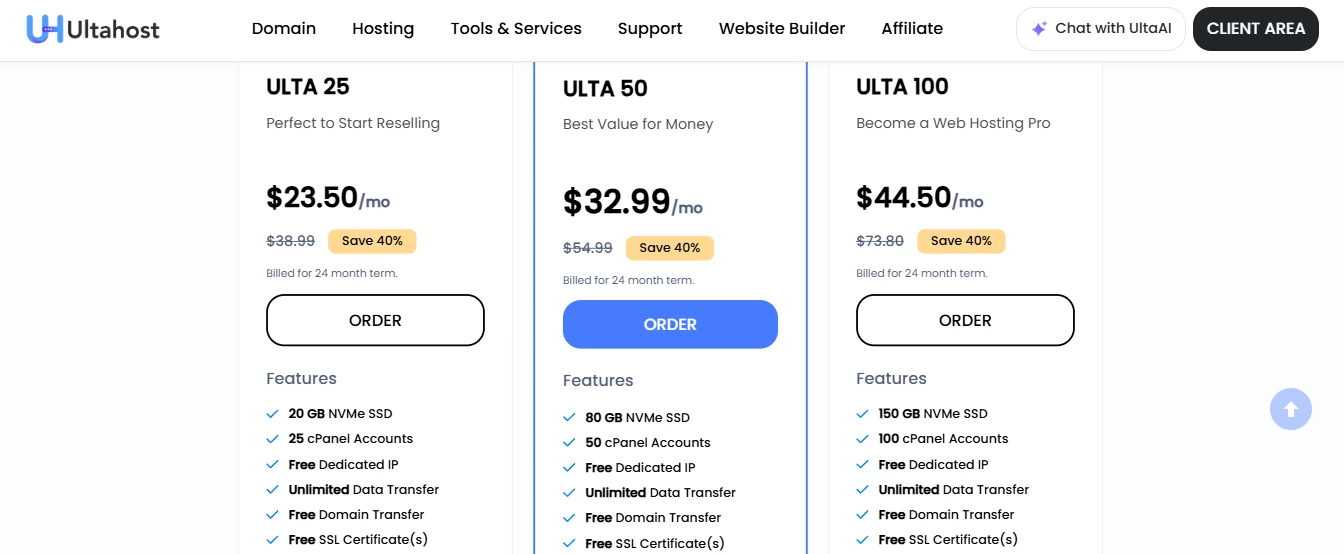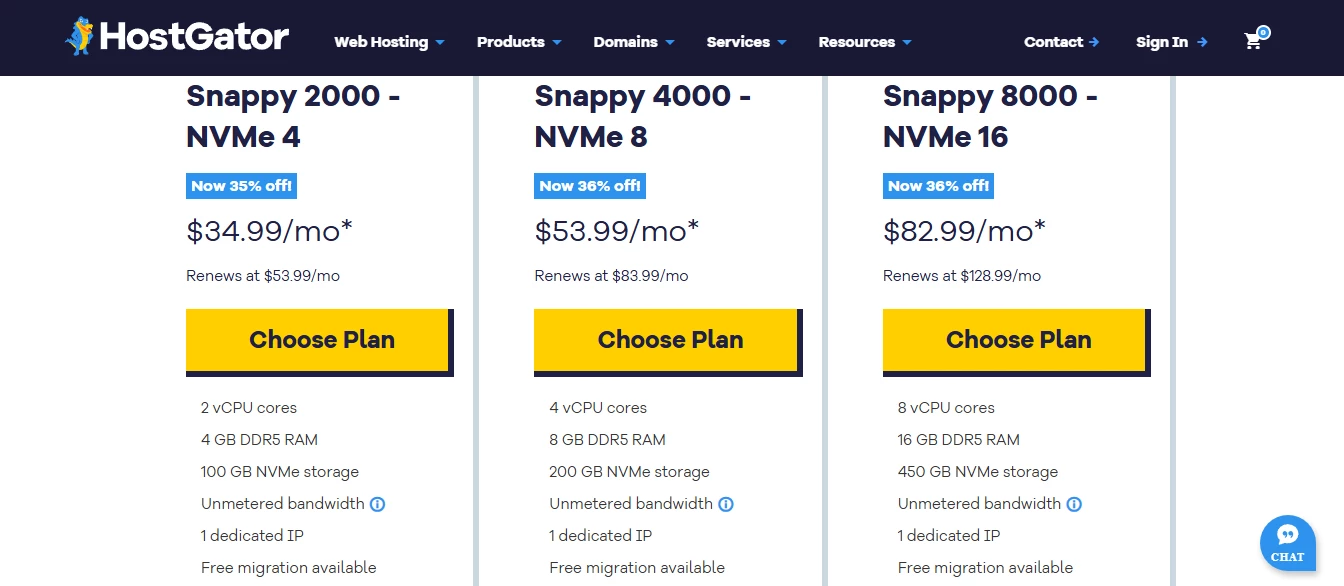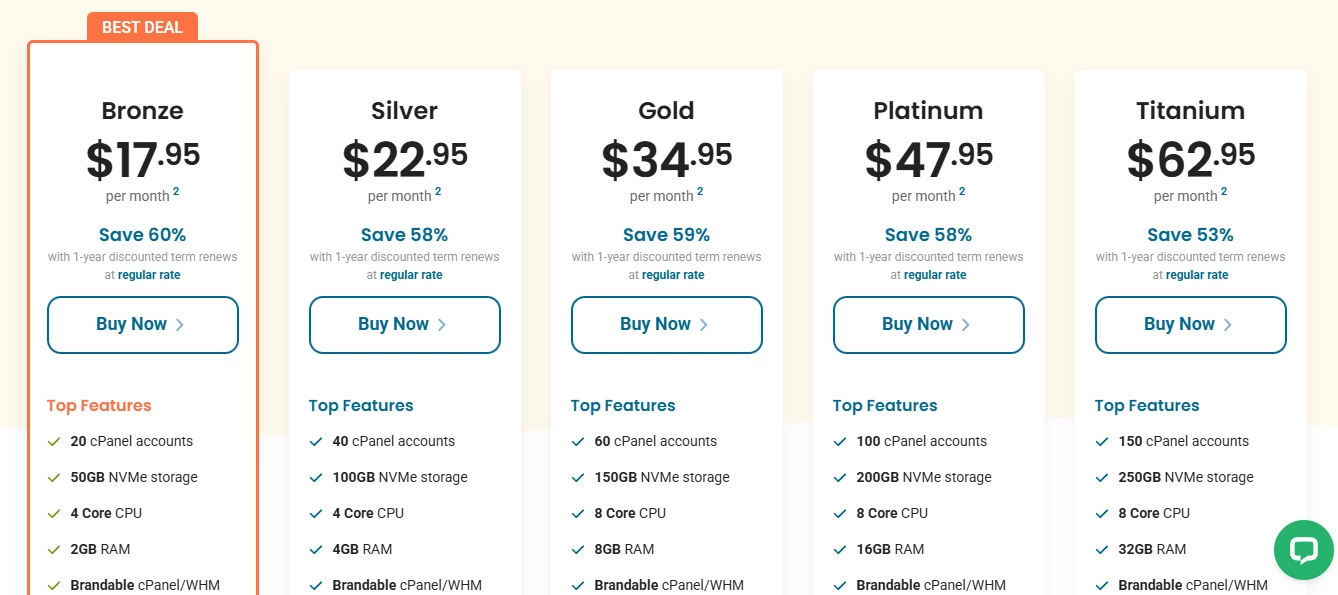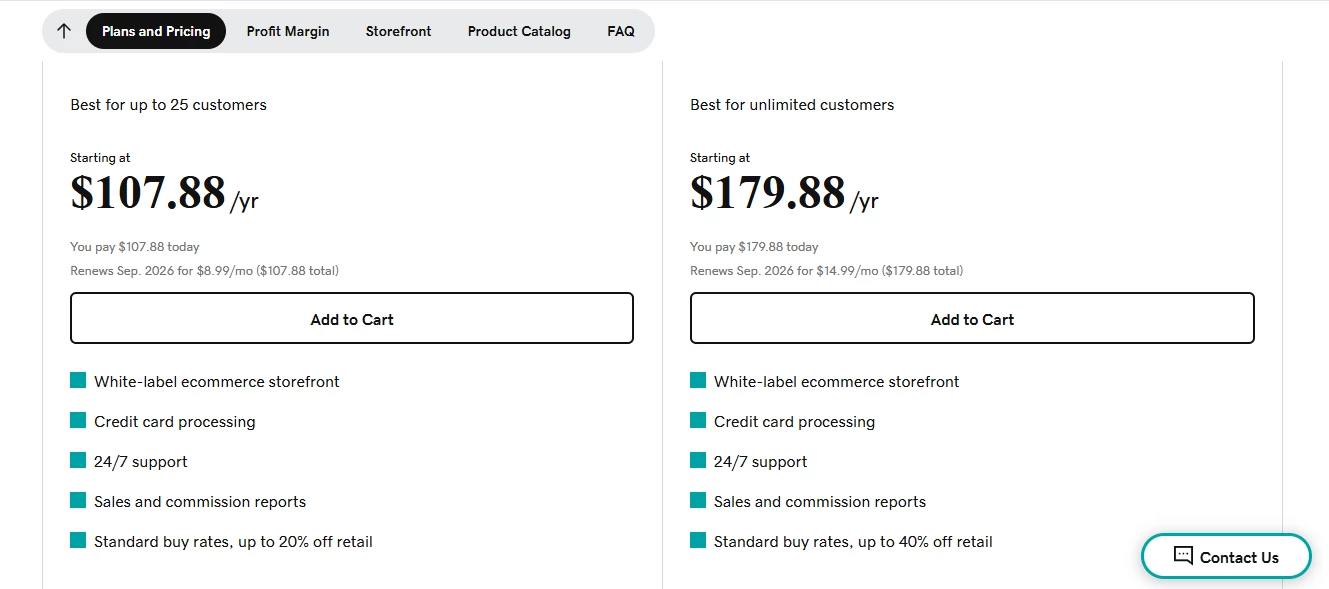If you've been toying with the idea of jumping into the web hosting industry, one question must be occupying your mind: Is web hosting profitable?
So, in this guide, we will explain how your costs and revenues are structured when you sell hosting. We’ll focus especially on reseller hosting profits, as this is the simplest path to start. We will also suggest strategies for maximizing your web hosting income and boosting your reseller profit.
How Does Web Hosting Work?
Before we discuss web hosting income, it helps to understand the basics. How does web hosting work? A web hosting company owns or rents servers that store all the files and data for a website. When someone types a domain name into their browser, the server "serves" up the website.
You, as a hosting provider, rent out space on those servers to your clients. You can do this in several ways:
- Reseller hosting
You buy a hosting plan from a bigger provider at a discounted rate. Then, you "resell" smaller chunks of that hosting to your clients. You manage the customer relationships and billing, while the parent company handles the technical stuff, like server maintenance and security.
- Running your own servers
You rent (or own) a dedicated server (usually several servers). This gives you more control and a higher profit potential. But you are responsible for everything, plus the upfront costs are much higher.
Each of these models has a different web hosting profit margin. If curious, we covered the web hosting terminology and business models in How to Start a Web Hosting Business — it’s a big guide with plenty of real-life examples.
How Much Web Hosting Income Can You Make?
One of the questions you may have when starting a hosting company is how much a web hosting startup can make. The question is a wise one; the issue is that there’s no fixed number. You come across articles saying that monthly web hosting income is $1,000 or $20,000 or whatever else, but all those estimations make little sense unless you factor in your business model, your web hosting niche, your upfront costs, and a lot more.
At the low end, you might resell shared hosting and make $3 per client per month. If you’re hosting a few websites for clients you already work with, your reseller profit could be an extra couple of hundred dollars a month. You thus get web hosting passive income (okay, income that’s close to passive) for little extra work.
On the high end, businesses that manage their own servers and offer additional pro services (e.g., Windows VPS plans, managed VDS hosting, custom web development, etc.) make dozens and even hundreds of thousands of dollars per month. The web hosting average cost would be $20–100+ per client per month, so some niche hosting companies earn six figures annually with a few hundred clients.
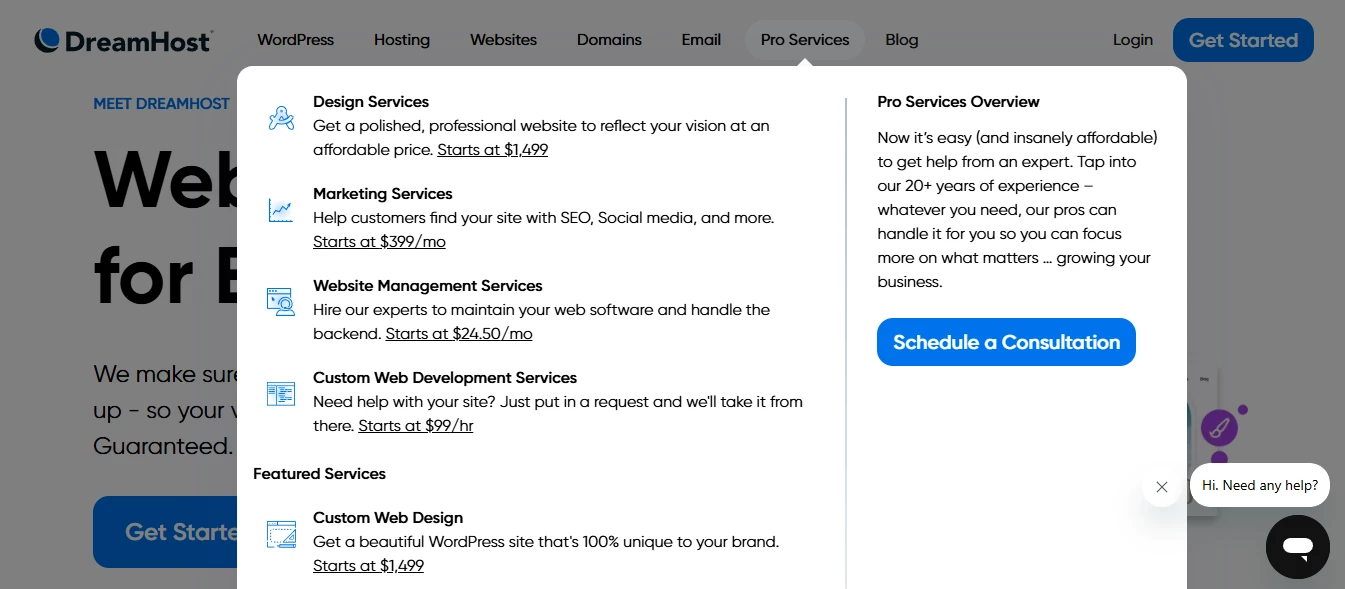
In other words, margins depend largely on your setup:
- Reseller hosting keeps costs low but limits control, and maximum reseller profit is typically beyond a thousand dollars monthly.
- Running your own servers gives more flexibility (and profit) but comes with higher upfront and maintenance costs.
Sounds somewhat puzzling so far? No worries, we will take a closer look at each of the business setups in the next sections.
Hosting Reseller Profit: How Much You Can Earn
Reselling is how many hosting providers started, and it’s a great way to learn the business from the inside without heavy investing.
For those interested in how to start reselling hosting, we explained this path step-by-step in our detailed guide.
Now, to get a feel for the numbers — how much web hosting income you can make with a reseller business — let's look at a basic setup.
Web hosting profit, consideration 1: Upfront costs
A reseller hosting package might cost you around $30-35 per month (unless you pick any of GoDaddy’s plans, the price of which is above the market). Let’s say you pick Ultahosts’s Ulta 50 plan that gives you 50 accounts for $33.
You'll also need:
- a domain name;
- a logo;
- maybe, a professional-looking theme for your website.
Let's budget about $100 in total, with around half of that being a one-time setup cost. You’ll also need a billing system like WHMCS, which starts at around $30 per month.
Web hosting profit, consideration 2: Your first clients
So we assume your reseller plan allows you to host up to 50 clients. Realistically, you won’t sign up 50 people right away. Instead, you could get 5-10 clients, especially if you’re already a web developer or designer who builds sites for people.
Web hosting profit, consideration 3: The math
You pay your parent company, say, $33 a month for your reseller plan, plus $30 for other tools. You charge your clients an average of $10 per month (let’s assume the web hosting average cost for the basic plan is around $5, and for the professional, around $18).
To break even, you need to have 14 clients with the basic plan, or 4 clients with the most advanced plan, or 7 clients with different plans. Now, that doesn't sound very optimistic, but as you grow to 50 clients (as your package allows you to), you’re at about $440 of monthly profit. The point is that your monthly costs don't increase with new clients, but your income does.
All in all, there is a potential for reseller hosting profit, on condition that you know how to get clients for your web hosting business.
Check our comprehensive roadmap for getting clients for web hosting.
Renting/Owing a Server: Your Average Web Hosting Income
Moving past the reseller model means taking on more responsibility but also unlocking a higher web hosting profit potential. This is where you really start to make money with a server you control.
Here is a quick look at the options for owning or renting your hardware (you'd need at least 5-6 servers for a full-scale hosting business).
| Setup | How it works | Approximate costs |
| Renting a dedicated server | You lease a server from a data center or hosting company. | ≈$150+ monthly |
| Owning a server (in-house) | You buy the server and house it in your own office/facility. | ≈2,000+ one-time + recurring operational costs (e.g., power, cooling, internet, which can start at ≈$30 monthly) |
| Colocation | You buy the server but rent space for it in a professional data center. | ≈$2,000+ one-time + ≈$70+ monthly |
While this table outlines your primary hardware costs, we won't attempt to forecast specific profits for this path. The reason is that your actual income is shaped by too many variables. Your operational expenses will depend on factors like:
- the size and salary of your technical support team;
- your marketing and advertising budget;
- software licensing fees (for control panels, billing systems, etc.);
- your physical location, which impacts utility and staffing costs.
The point of these figures is to show the initial investment required to get your server running. Planning a business at this scale requires a detailed financial model and business plan, which goes far beyond the scope of a blog article.
Tricks to Make More Web Hosting Income In 2026
As we said above, to increase your web hosting income, you need to get more people to buy your plans. You can also increase your average revenue per user (ARPU). This means getting more money from each client. This way, you can have more web hosting income with the existing pool of clients. Below are a few tricks to do so.
Offer extra services and add-ons
You already sell hosting space. Now, think about what else a website owner needs.
- SSL Certificates
Every website needs an SSL certificate for security and search engine ranking. Many hosting providers include a free one with Let's Encrypt, but you can upsell premium Extended Validation (EV) SSL certificates, too.
- Website Migration
Moving a website from one host to another is a nightmare for most website owners. You could step in and offer it as a service (and charge a flat fee for this, of course).
- Website Maintenance & Updates
Websites need regular updates to stay secure. Offer a managed service where you handle all the core and plugin updates. But if you were looking for passive income for developers and hosting resellers, skip this option as the income it brings is anything but passive.
- SEO and Marketing
If you have the skills, you can offer a full-service package. This is where you can make a lot more money with a server.
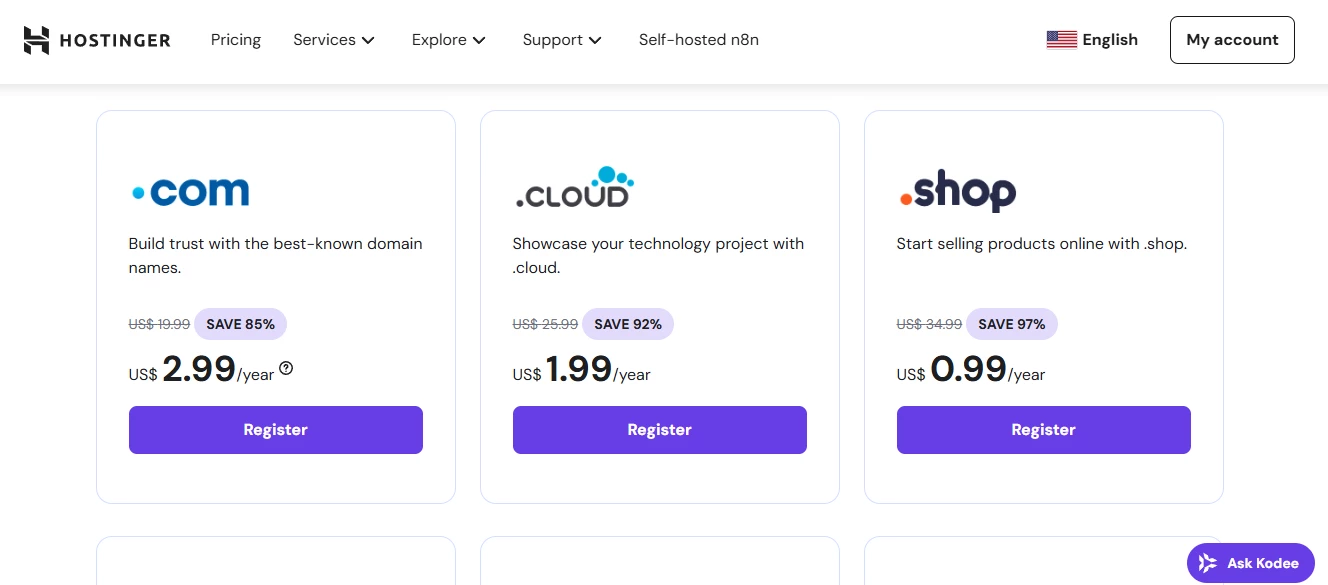
More popular extras and services you could offer:
- AI-empowered extras (website building, no-code site launch, etc.);
- email marketing;
- domain registration/transfer;
- logo making (that’s right, simple AI-powered logo generation at GoDaddy would cost you about $15).
Bundle your web hosting plans with different control panels
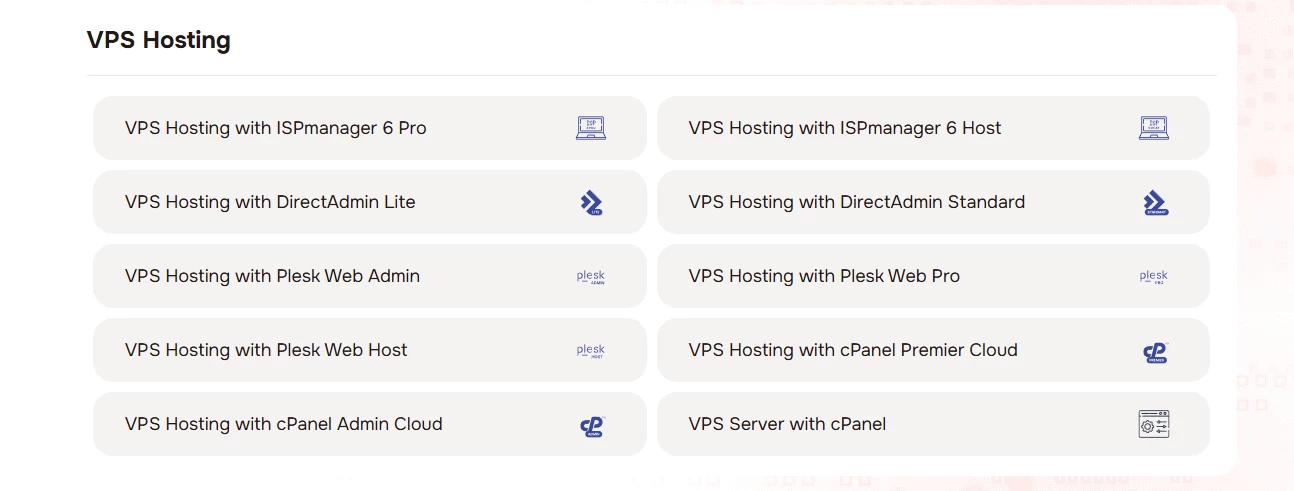
Your choice of control panel is a bigger deal than most newcomers realize. It directly impacts your efficiency, customer experience, and, most importantly, your web hosting profit.
So if you’re selling shared hosting, you need a panel that lets you host an unlimited number of accounts on a single server. This is a key concern with cPanel, in fact, because it charges per account after the first 100. You, in turn, need an affordable plan with a reliable panel that has a user-friendly interface. The latter is important because your team will be living inside this panel every day.
For VPS/VDS hosting, the task is different: you need to offer a selection of panels. That’s because your VPS clients are often developers and users who have strong preferences. To reach the widest client base, you need to have:
- industry leaders like Plesk and cPanel;
- more affordable solutions like ispmanager and DirectAdmin.
To get a clear idea of how you actually bundle your VPS plan with a control panel, check our guide that explains the process step-by-step. While it uses ispmanager as an example, the process is largely the same for most panels.
Learn to "oversell" (carefully)
"Overselling" is when a web hosting provider sells more bandwidth or disk space than they physically have. Why would anyone do that? Because one assumes that not every client will use their full allocated resources at the same time.
For example, your reseller plan gives you 100 GB of disk space. You sell 10 GB plans to 20 clients, so you've sold 200 GB. But since most of your clients will only use a small fraction of their space, it all works out.
Of course, there are many pitfalls. For example, you risk overselling from a provider who is also overselling. That’s a disaster. But if you own or rent a dedicated server and are careful (and thoughtful) about how much you oversell, that may actually work. The practice has both performance and ethical implications. If interested, you can check this thread on WebHosting Talk with different perspectives on the matter.
Can Web Hosting Bring Stable Income for Developers?
Absolutely, but it’s smart to keep in mind the relationship between the number of clients you’ll realistically have and the web hosting income they’ll bring you. If you have just 4-5 clients who will be using your web hosting services, they’ll be bringing you several dozen dollars a month. It’s doubtful whether the web hosting income as small as that is worth the time you’ll spend on managing customer support for them.
If, however, you’ve got 20+ clients, plus you see that word of mouth works well, then it may work well. In fact, the reason why web hosting is often listed as one of the best passive income ideas for developers is that you're already building websites for clients. So, you can use the existing trust and build a recurring revenue stream.
And yet, it is never a completely passive income stream. You will need to handle support requests, billing issues, and server maintenance (if you run your own servers).
5 Must-Haves to Increase Web Hosting Income
No matter what kind of hosting setup you end up with, there are a few basics you must get right if you want clients to stick around.
Fast, stable internet
Slow sites always mean lost clients. Make sure your servers (or your provider’s) are connected to a reliable, high-speed network with low latency. If you rent or resell, double-check the provider’s uptime guarantee and network redundancy.
Strong security + backups
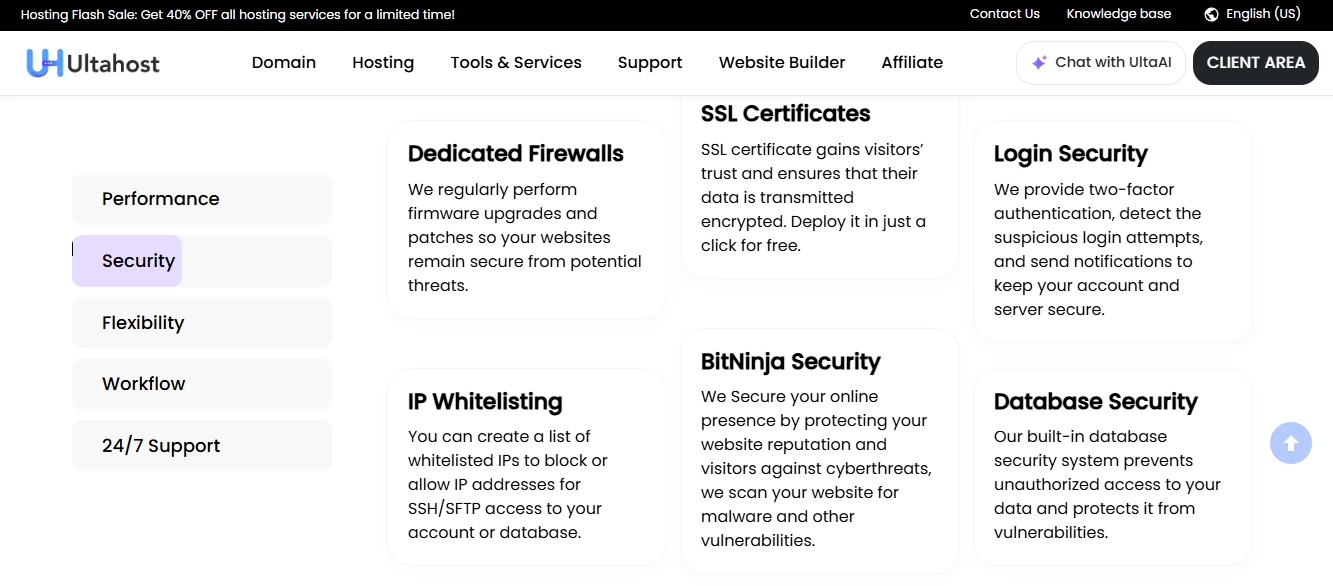
Hosting means holding someone else’s project — their business, data, and brand. That’s a big responsibility.
A few practices to consider:
- enable firewalls and malware scanners (e.g., BitNinja);
- isolate user accounts;
- offer free SSLs (Let’s Encrypt or similar);
- automate backups and make restoring easy.
If you’re a reseller: Vet your provider. Their infrastructure must be well protected (it’s best to make a checklist to help you assess it, because otherwise, it’ll be difficult to remember everything).
Seamless onboarding and billing
Your processes are totally clear to you because it’s you who has invented them. Now, put yourself in the shoes of a client. They don’t know the big picture; they only see what you have shown to them. So a smart thing to do is to double-check that they don’t have to guess what to do next.
From the moment they land on your site to the time they get access to their panel, everything should be clear, fast, and painless:
- simple signup;
- auto-setup after payment;
- intuitive dashboard;
- clear billing terms and upgrade options.
A web hosting plan for every stage
Your clients will grow, and your offer should make it easy to grow with them. At the very least, it’s best to have shared hosting for beginners and VPS/VDS for growing projects.
And it’s equally important to keep pricing transparent and avoid tricks (like when you show one price on the main screen and then it turns out there are tons of hidden costs to add). If clients trust you from the start, they’ll stay longer and spend more.
Real predictable support
If you explore forums like Reddit, Quora, and WebHosting Talk, you'll see a common comment: web hosting support is not a 9-to-5 job. And this is true because things can break at any time, including at 2 am.
When starting out solo, you cannot be available 24/7. However, since support quality directly influences your web hosting income, one solution is to set clear expectations (e.g., 'email support within X hours'). For serious issues, however, it’s best to respond as quickly as possible.
Trend awareness
Given that there are over 330,000 web hosting companies, you really need to know where the industry is moving and make your offer reflect those trends.
There is always a hype cycle. For example, you may have noticed that right now, everyone is talking about:
- green hosting (businesses are becoming more conscious of their carbon footprint);
- AI and automation (AI is already being used to predict hardware failures, manage server resources in real-time for better performance, and so on);
- plus, edge computing, vibe coding, and self-hosting, to name but a few.
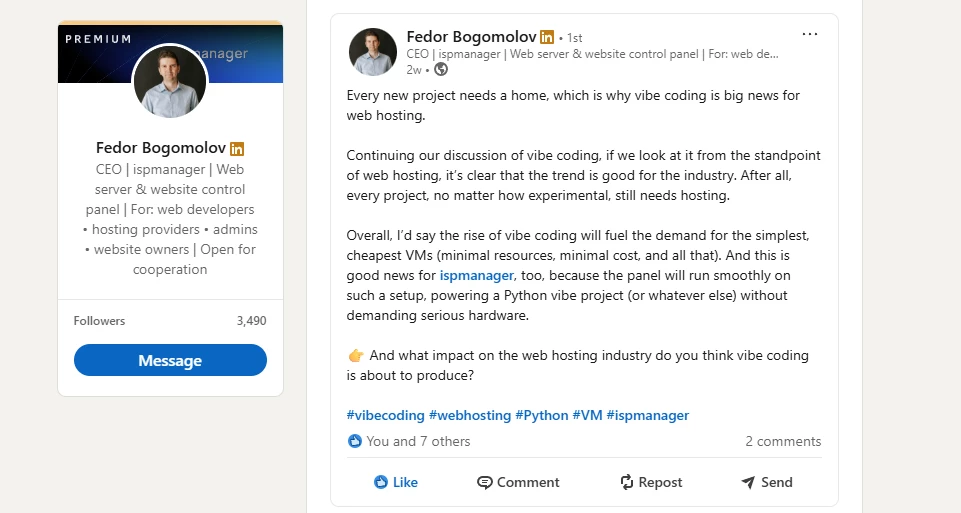
Follow industry experts (e.g., podcasts from Konrad Keck) and engage with the chatter on forums. The latter is more time-consuming, but it’s a raw look at what clients and competitors are thinking. And when you spot a trend, make your website and offers reflect it (e.g., set up a plan that features AI-powered site building).
Is Web Hosting Taxable?
As with anything that has to do with regulations, the answer varies depending on your location. Generally, yes, web hosting income is taxable. However, the specific rules depend on where you live and where your clients live.
In the United States, for example, many states treat web hosting as a taxable service. Some states consider it an "intangible digital good" and don't tax it. Since there's a lot of grey area here, the best thing to do is to consult a tax professional or an accountant who understands digital services and your local jurisdiction.
Web Hosting Income: Wrap Up
So, how much can you make with web hosting in 2026? The answer depends on your business model.
If you choose the reseller path, start with simple math to define your goals. Calculate the number of clients you need to break even on your reseller plan. Then, determine how many more clients it takes to generate a monthly profit you're happy with. For many, a side business earning several hundred dollars a month is a very realistic target.
To build a full-scale business earning tens of thousands of dollars monthly, you must move beyond reselling and run your servers. This requires significant capital and technical expertise, but it is the path to building a much larger enterprise.
